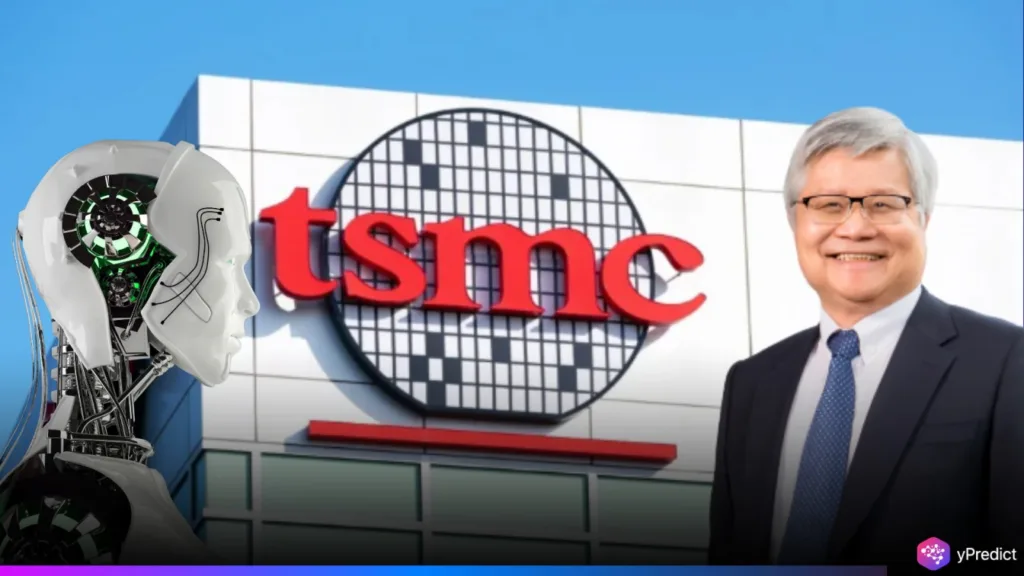
Taiwan Semiconductor Manufacturing Co. (TSMC), the world’s largest contract chipmaker, has confirmed that demand for artificial intelligence (AI) chips remains exceptionally strong, despite U.S. trade tariffs presenting modest challenges to its global operations.
At its 2025 shareholder meeting, TSMC’s CEO acknowledged that while tariffs have had some indirect impact, they have not slowed the company’s momentum. Driven by surging AI adoption, TSMC projects record profits and continued growth despite ongoing geopolitical and economic pressures.
TSMC AI Demand Outpaces Tariff Challenges
Taiwan Semiconductor Manufacturing Company acknowledged on Tuesday that U.S. trade tariffs are exerting some indirect pressure on its operations. However, the company emphasized that the surging global appetite for artificial intelligence (AI) chips continues to outstrip supply, providing a strong counterbalance to the impact of geopolitical uncertainty.
Reuters reported that at the company’s annual general meeting in Hsinchu, CEO and Chairman C.C. Wei addressed shareholders, stating that, while tariffs imposed by former US President Donald Trump’s administration have made the global semiconductor industry less predictable, TSMC’s core business remains strong. He said,
Tariffs do have some impact on TSMC, but not directly. That’s because tariffs are imposed on importers, not exporters. TSMC is an exporter. However, tariffs can lead to slightly higher prices, and when prices go up, demand may go down. If demand drops, TSMC’s business could be affected. But I can assure you that AI demand has always been very strong and it’s consistently outpacing supply.
Despite these challenges, Wei assured stakeholders that the market for AI-related semiconductors remains strong. He added that the situation may become more transparent over time. Wei also stated that TSMC is in active negotiations with the US Department of Commerce concerning the impact of the tariffs, particularly on equipment purchased in Asia but used in American manufacturing operations.
The business is investing $165 billion to increase production capacity in the United States. He stated that while US authorities are ready to dialogue, the timing for a resolution is uncertain.
Record Profits Projected for 2025
Despite risks caused by geopolitical tensions, shifting currency prices, and trade policy revisions, TSMC maintained a bullish outlook for 2025. The company expects record revenues, fueled by persistent interest in advanced semiconductors used in AI infrastructure. TSMC remains a major supplier to IT behemoths like Apple and Nvidia, both of whom are aggressively investing in AI technologies.
In April, TSMC announced strong first-quarter profitability and gave a positive outlook, owing primarily to sustained growth in the AI sector. The company’s position as the world’s largest contract chipmaker has been strengthened by the spike in demand for high-performance processors required for AI development.
TSMC is also considerably expanding its production footprint in the United States, investing $165 billion to build advanced facilities. However, Wei voiced concern that certain US-sourced manufacturing equipment is made in Asia, which may complicate operations and increase production costs under present trade restrictions.
Dismissing Expansion Rumors, Staying Focused
TSMC also clarified its strategic focus by denying recent reports of potential expansion into the Middle East. Wei denied media allegations that TSMC was exploring developing factories in the UAE. He stated that current demand and infrastructure do not justify building fabrication plants in that region.
Instead, TSMC will remain focused on expanding in proven markets like the U.S., Japan, and Europe, aligning capacity expansion with secure supply chains and long-term customer commitments.
Meanwhile, the corporation is closely monitoring escalating cross-strait tensions with China. While China considers Taiwan to be part of its territory, TSMC insists that any regional escalation would be handled by governments rather than private firms.






